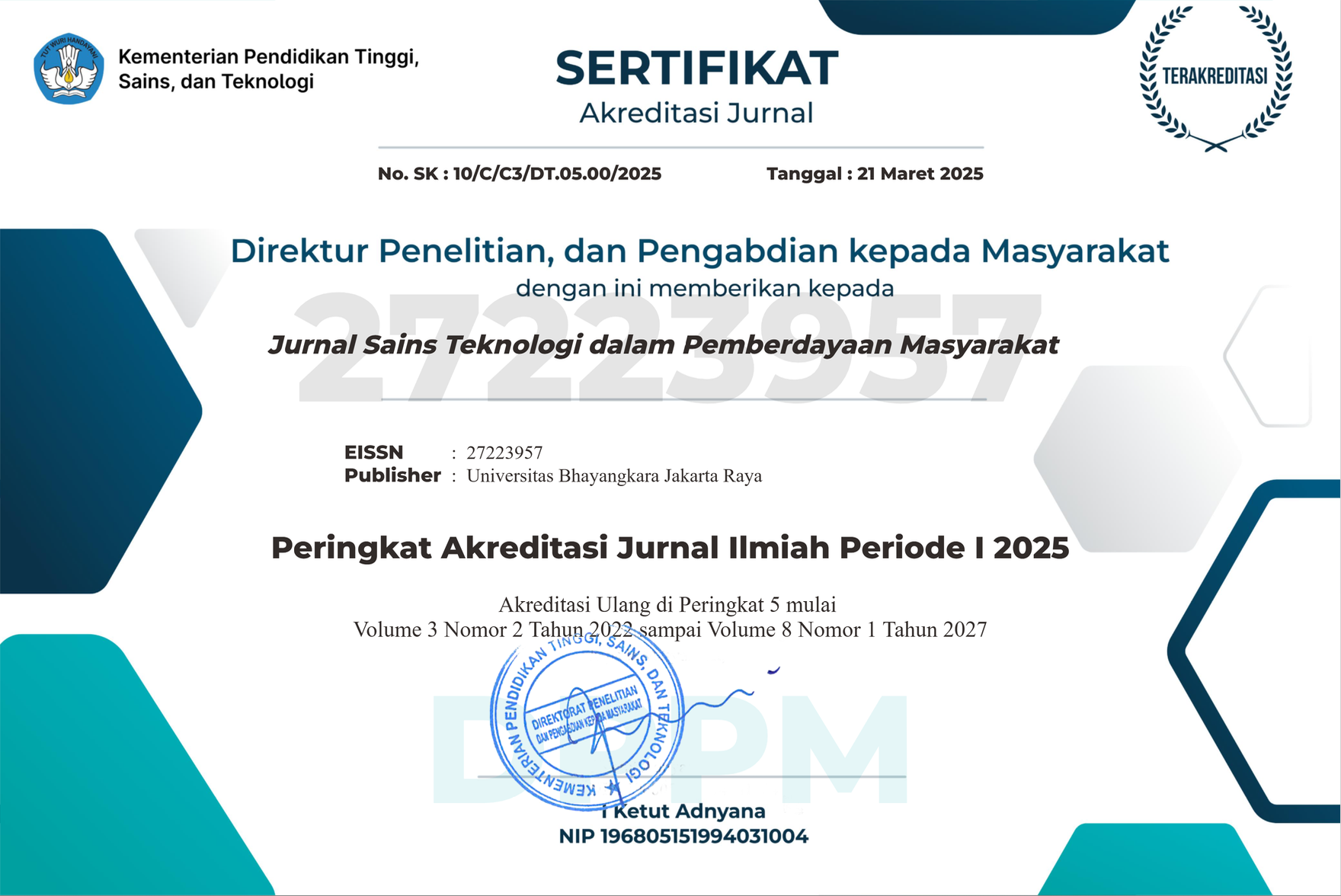Peningkatan Resapan Air Hujan dan Reduksi Sampah Organik di Wilayah Permukiman dengan Pembuatan Lubang Resapan Biopori
DOI:
https://doi.org/10.31599/jstpm.v1i2.431Keywords:
Biopori, water infiltration, waste reductionAbstract
Puddles during rainy season and domestic waste have become problems in many cities. Another recurring problem is decreasing water source during dry season because rain water hardly infiltrated into the soil. Green open spaces have been converted into building resulting in the decrease of rain water infiltration. Due to decreasing water infiltration area, rain water mostly becomes water run off instead of infiltrated water. Domestic waste management is also another concern in the city. Domestic waste can cause many problems to the environment and health if it is not managed properly. Mutiara Gading Timur housing complex is one of the areas in Bekasi city which only has limited green open space. Most of the area has been transformed into house or street. Biopori infiltration hole can be an alternative to reduce water run-off and reduce biodegradable waste. It is made vertically into the soil by digging a hole of 10 – 25 cm in diameter dan 100 cm depth. Organic waste is placed on the top of biopori infiltration hole. It will decompose and turn into compost which will improve organisms activity in the soil and create pores to infiltrate water.


















